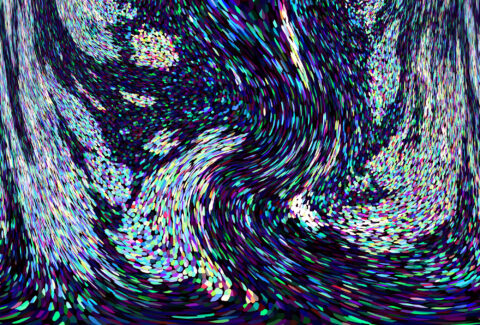Søren Kierkegaard and Existential Therapy: A Journey Into the Depths of the Self

Søren Kierkegaard and Existential Therapy: A Journey Into the Depths of the Self
Søren Kierkegaard, the 19th-century Danish philosopher, is often regarded as the father of existentialism.[1] His exploration of the self, freedom, anxiety, and despair laid the groundwork for later existential thinkers such as Jean-Paul Sartre, Viktor Frankl, and Martin Heidegger. However, Kierkegaard’s ideas extend far beyond philosophy, influencing fields like psychology and psychotherapy, especially therapy that emphasizes personal responsibility, freedom, and finding meaning in life.
Kierkegaard’s Core Concepts: Anxiety, Despair, and the Self
At the heart of Kierkegaard’s philosophy is the concept of the self.[2] According to Kierkegaard, the self is not a static entity but a dynamic process, a constant struggle between the finite and the infinite, the temporal and the eternal. This internal tension is most acutely felt in the experiences of anxiety and despair.
Anxiety: The Fear of Freedom
For Kierkegaard, anxiety is the existential condition that arises when a person confronts their own freedom. It is not a fear of specific objects or situations but a profound sense of dread stemming from the realization that one is free to choose, and with that freedom comes responsibility. Anxiety is the recognition of one’s capacity to shape their own life, yet it also exposes one to the possibility of failure, inaction, and alienation.[3]
In Existential Therapy, anxiety is seen not as something to be avoided or eliminated but as a catalyst for growth. Like Kierkegaard, existential therapists view anxiety as an inevitable and essential part of the human experience. It challenges individuals to face the reality of their existence and to make conscious choices about how to live.
Despair: The Struggle for Authenticity
Kierkegaard’s concept of despair is perhaps one of the most poignant elements of his existential philosophy. Despair, in Kierkegaard’s view, is the state of being disconnected from one’s true self. It arises when a person fails to reconcile the contradictions within themselves or when they live inauthentically, according to external expectations rather than their true nature.[4] Despair is not merely sadness or depression but a deep sense of disconnection, a lack of alignment between who one truly is and how one lives.
In Existential Therapy, despair is understood as a sign that a person is out of touch with their authentic self. Therapy does not aim to eliminate despair, but rather to help individuals confront it and explore what is missing in their lives. Through this process, individuals can begin to understand and embrace their true selves, finding meaning and purpose even in the face of suffering.
Existential Therapy: Confronting Life’s Hardships
Existential Therapy is grounded in the belief that human beings are constantly confronted with the fundamental questions of existence: Who am I? What is the meaning of life? What is my purpose? While it shares much with traditional psychoanalysis in addressing inner conflict, Existential Therapy differs in its emphasis on personal responsibility, freedom, and the search for meaning.[5]
Kierkegaard’s influence on Existential Therapy is evident in the therapist’s role as a guide rather than a fixer. The therapist does not provide solutions or answers but helps the individual navigate their own inner struggles. Existential Therapy is seen as a partnership in which the individual is encouraged to confront existential anxiety, embrace uncertainty, and accept responsibility for their choices. By facing the truth of their existence, individuals can reclaim their freedom and find their own path toward authenticity and meaning.
Freedom and Responsibility
For both Kierkegaard and Existential Therapy, the central issue is the relationship between freedom and responsibility. Kierkegaard viewed freedom as a double-edged sword: while it offers the possibility for self-determination and growth, it also entails the burden of making choices in a world that does not offer absolute certainty. Existential Therapy encourages individuals to embrace their freedom fully, acknowledging that with every choice comes the responsibility to shape one’s own life.
This focus on responsibility is liberating but can also be daunting. Existential Therapy helps individuals understand that they are not simply passive recipients of life’s circumstances; they are active participants who create meaning through their choices. In this way, therapy becomes a journey of self-discovery and self-creation.
Finding Meaning in Suffering
Kierkegaard’s existentialism acknowledges that suffering is an inherent part of the human condition. However, it also offers hope: through suffering[6], individuals can find meaning and purpose. This concept deeply resonates with Existential Therapy, which teaches that even in the most painful or difficult moments, there is the potential for growth and transformation. Instead of avoiding pain or seeking to eliminate it, existential therapists encourage clients to confront it directly, explore its roots, and discover how it can lead to personal growth.
This idea is closely related to the work of Viktor Frankl, the founder of logotherapy, who argued that the search for meaning in life is the primary motivation for human beings. Like Frankl, Kierkegaard believed that meaning is not something given but something that each individual must create through their choices and actions. In Existential Therapy, this search for meaning is central, and clients are encouraged to find purpose even in the face of adversity.
Kierkegaard’s Legacy in Existential Therapy
Søren Kierkegaard’s exploration of the human condition laid the foundation for Existential Therapy by emphasizing the importance of self-awareness, personal responsibility, and the search for meaning. His insights into anxiety, despair, and the nature of the self continue to resonate with therapists and clients alike. Existential Therapy, in turn, provides a framework for understanding and addressing the existential dilemmas that Kierkegaard so profoundly articulated.[7]
In practice, Existential Therapy inspired by Kierkegaard challenges individuals to engage with their own existence, confront their anxieties, and face the inevitability of suffering. By doing so, individuals are empowered to create authentic, meaningful lives, in which they fully embrace their freedom and take responsibility for shaping their own destinies.
In conclusion, Søren Kierkegaard’s philosophy is not just an abstract set of ideas but a deeply human exploration of the self, anxiety, despair, and the search for meaning. Existential Therapy, influenced by his work, helps individuals navigate the complexities of life, offering a path toward greater authenticity, freedom, and personal growth. Through this therapeutic approach, people can find their own answers to life’s deepest questions and ultimately create lives of purpose and meaning.
Would you like to help your patients and clients find freedom, authenticity, and meaning in life? If so, join us for our 8-week Existential Psychotherapy Certificate Course, held virtually starting on February 26, 2025. Click HERE to register.
[1] Kierkegaard, Søren. Søren Kierkegaard. Vol. 1. Gyldendalske bokhandel Nordisk forlag, 1908.
[2] Shchyttsova, Tatiana. “KIERKEGAARD’S EXISTENTIAL THERAPY AND THE PROBLEM OF THE SUBJECT.” Topos (18150047) 1 (2014).
[3] Costello, Stephen J. “An existential analysis of anxiety: Frankl, Kierkegaard, Voegelin.” International Forum for Logotherapy. Vol. 34. No. 2. 2011.
[4] Vaškovic, Petr. “A path to authenticity: Kierkegaard and Dostoevsky on existential transformation.” International journal for philosophy of religion 87.1 (2020): 81-108.
[5] Griffith, James L. “Existential inquiry: Psychotherapy for crises of demoralization.” The European Journal of Psychiatry 27.1 (2013): 42-47.
[6] Andersen, Aida Hougaard, et al. “Why we suffer? Existential challenges of patients with chronic illness: A Kierkegaardian inspired interpretative phenomenological analysis.” Journal of Humanistic Psychology (2021): 0022167821
[7] Crowell, Steven. “Existentialism and its legacy.” The Cambridge companion to existentialism (2012): 3-24.






